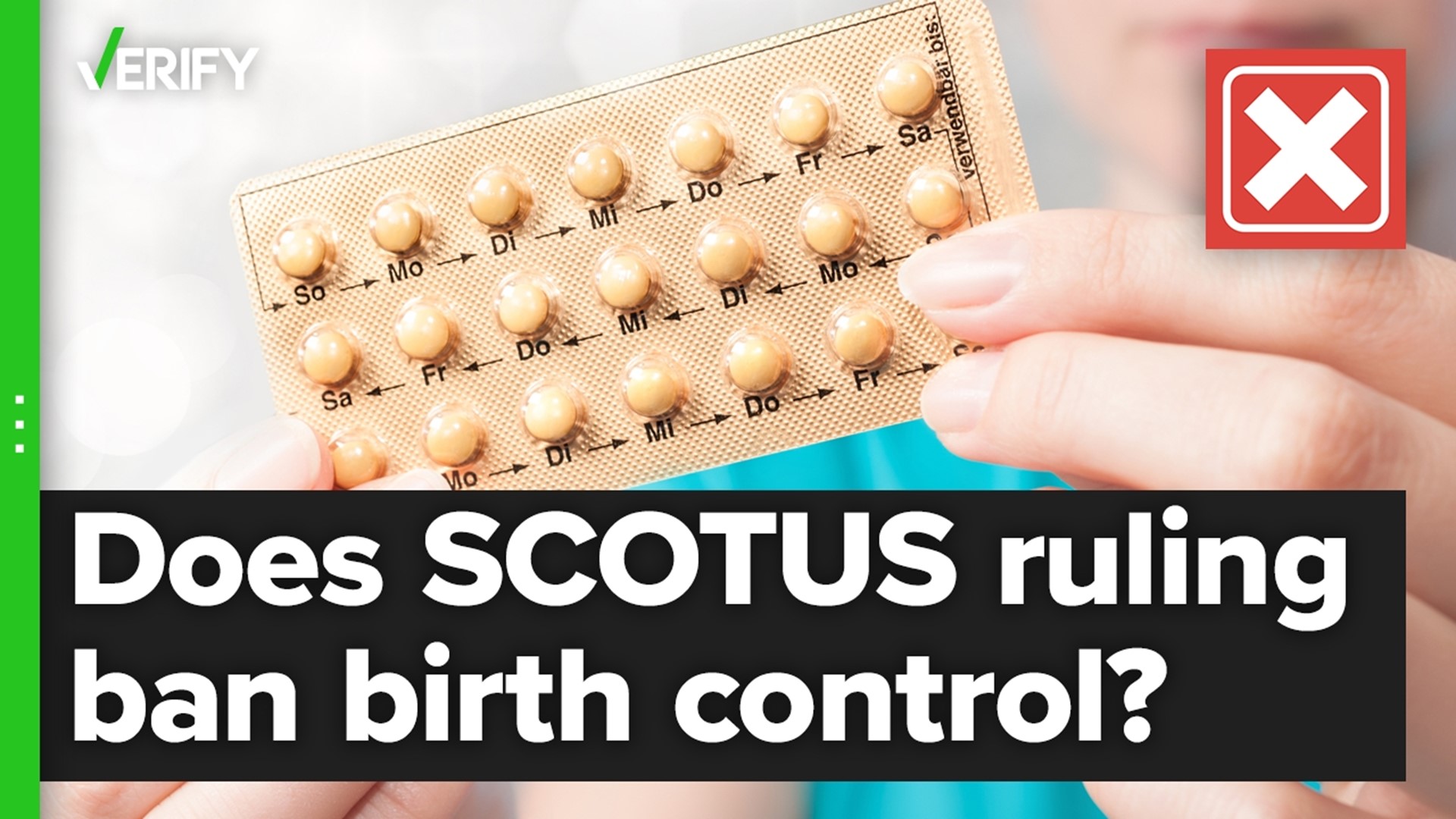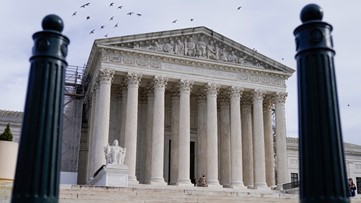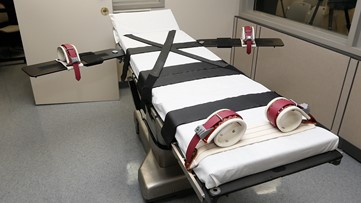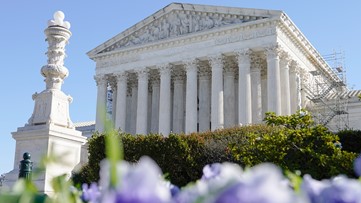The overturning of the landmark 1973 Supreme Court ruling Roe v. Wade, which federally protected the right to an abortion, has led to many questions about potential impacts in other areas of reproductive health care.
Some people on social media have expressed concerns about access to contraceptives following the Supreme Court’s decision on June 24.
VERIFY viewer Cierra also texted the team to ask, “Is birth control banned now?”
THE QUESTION
Did the Supreme Court’s decision to overturn Roe v. Wade ban birth control?
THE SOURCES
- Dobbs v. Jackson Women’s Health Organization
- Griswold v. Connecticut
- Liza Fuentes, senior research scientist at the Guttmacher Institute
- Center for Reproductive Rights
THE ANSWER
No, the Supreme Court’s decision to overturn Roe v. Wade does not ban birth control.
WHAT WE FOUND
The Supreme Court’s decision in Dobbs v. Jackson Women’s Health Organization eliminated the constitutional protection for abortion, which was established by Roe v. Wade in 1973 and reaffirmed by Planned Parenthood v. Casey in 1992. It did not change other constitutional rights guaranteed by the Fourteenth Amendment, including access to contraception.
“The Court emphasizes that this decision concerns the constitutional right to abortion and no other right. Nothing in this opinion should be understood to cast doubt on precedents that do not concern abortion,” a summary of the majority opinion, written by Supreme Court Justice Samuel Alito, reads.
In 1965, the court ruled in Griswold v. Connecticut that the use of contraception by married couples was included under the right to privacy inferred from the Fourteenth Amendment of the U.S. Constitution. The same tenant of a right to privacy was used to protect abortion in Roe v. Wade, grant the right to engage in private, consensual sex acts in Lawrence v. Texas, and legalize same-sex marriage in Obergefell v. Hodges.
Supreme Court Justice Clarence Thomas emphasized in his concurring opinion that other cases not pertaining to abortion aren’t currently impacted by the ruling, writing in part that Griswold is “not at issue.”
“Thus, I agree that nothing in [the Court’s] opinion should be understood to cast doubt on precedents that do not concern abortion,” Thomas wrote.
Thomas did add that the court should “reconsider” precedents like Griswold that affirmed a right to privacy in future cases. His comments have led to concerns from advocates about potential future rollbacks of LGBTQ rights and other reproductive health protections.
In their dissenting opinion, the three justices who opposed the overturning of Roe v. Wade said they “suspect the prospects of this Court approving bans on contraception are low.” However, the opinion will “fuel the fight to get contraception, and any other issues with a moral dimension, out of the Fourteenth Amendment and into state legislatures,” they added.
Both Liza Fuentes, a senior research scientist with the Guttmacher Institute, and a spokesperson for the Center for Reproductive Rights told VERIFY there are no states that ban contraceptives entirely. However, some states limit minors’ access to contraception, and adults are impacted by barriers such as required prescriptions for some birth control methods, the Center for Reproductive Rights added.












